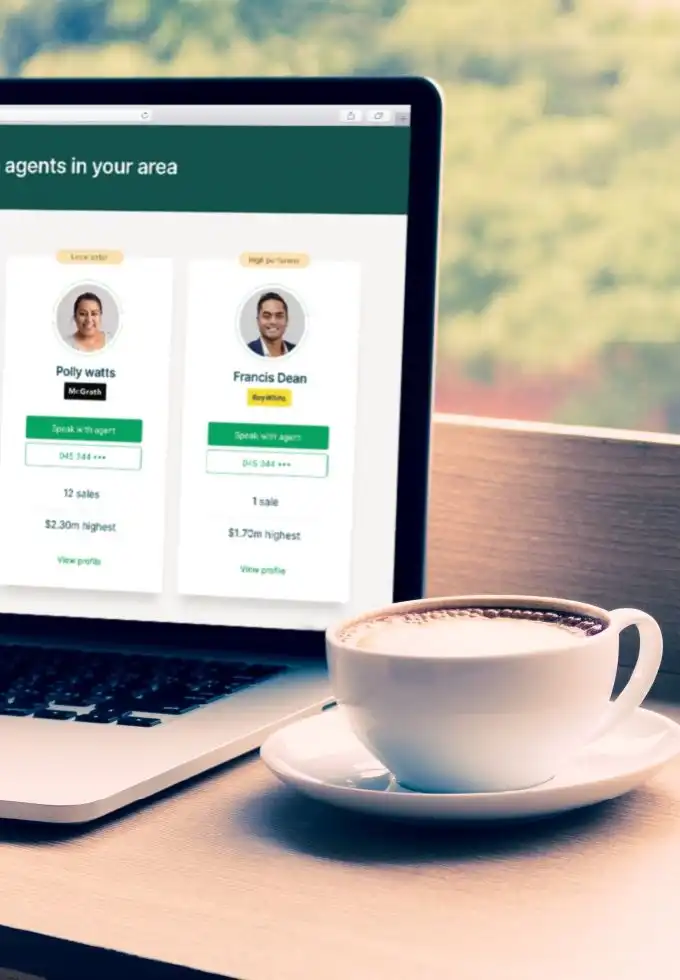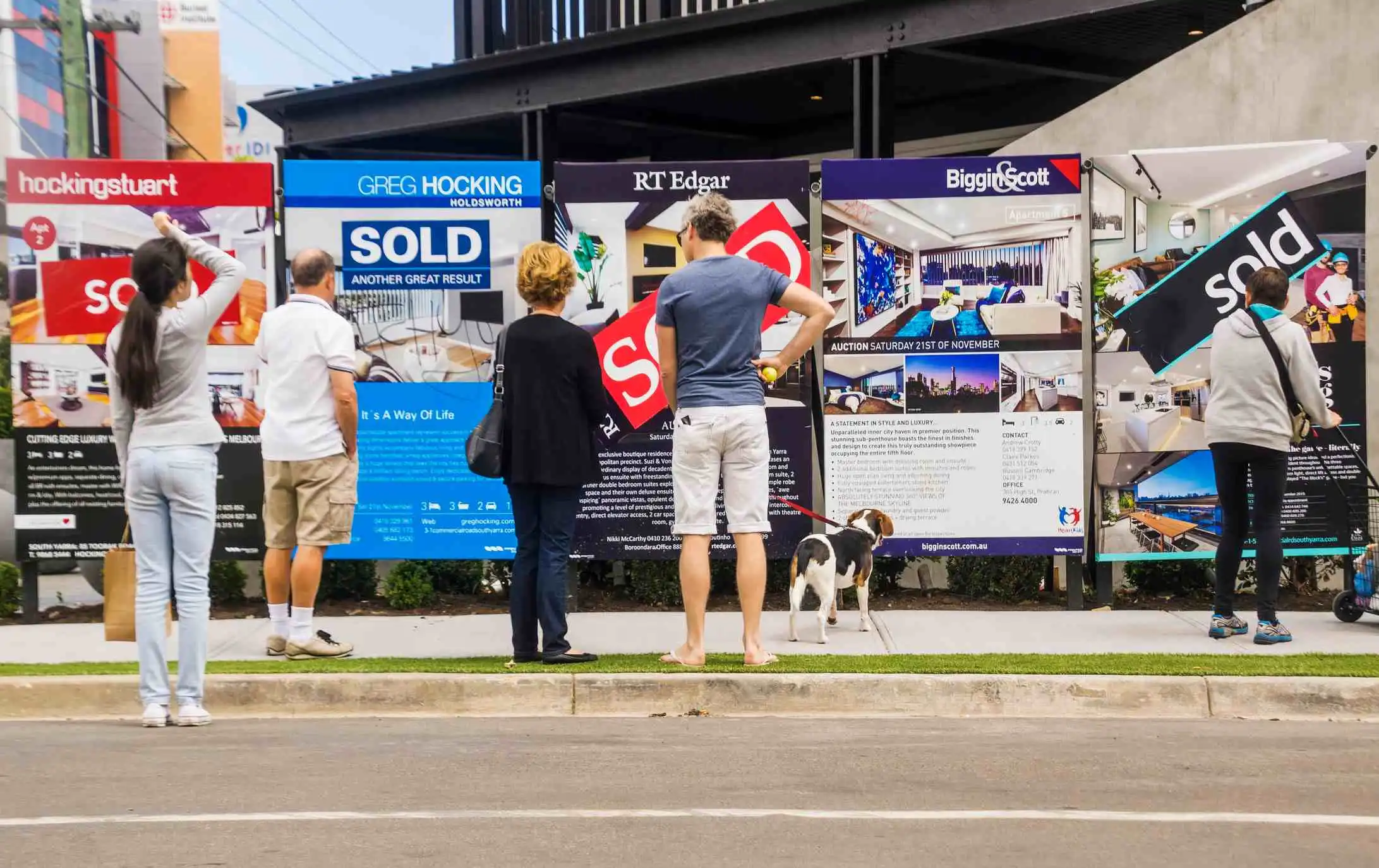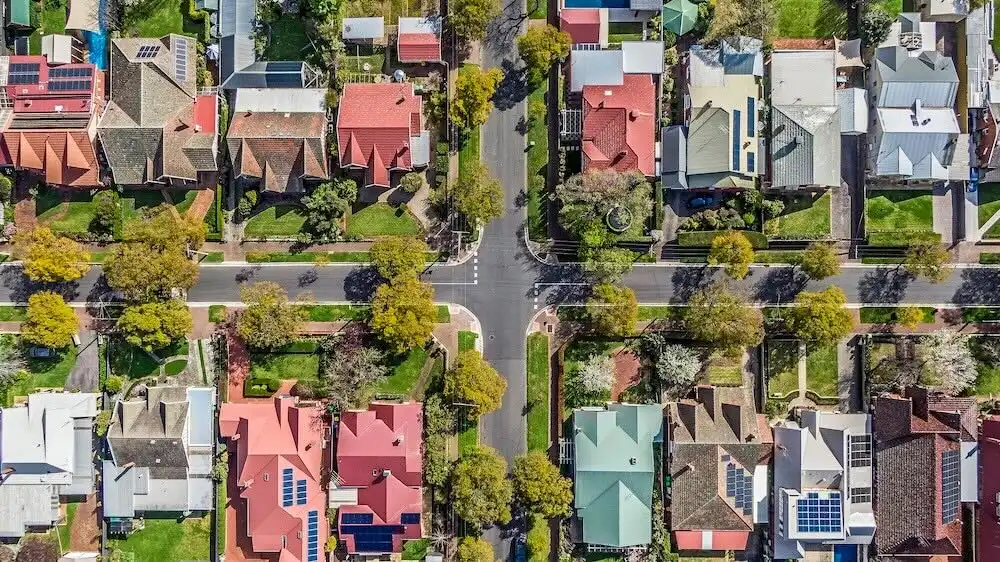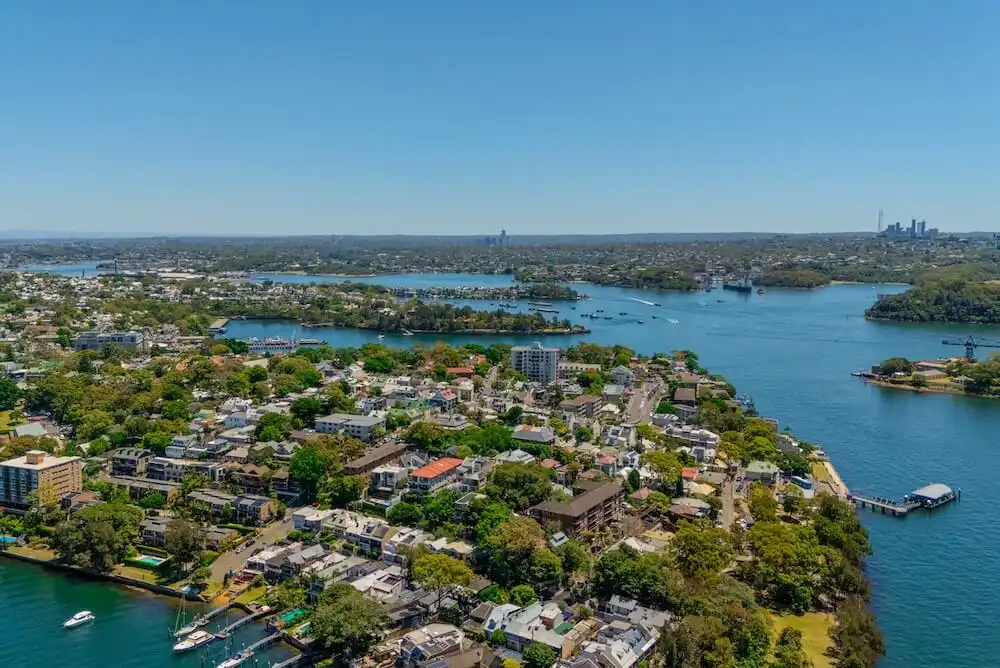Selling in a changing market: expectations vs reality
Samantha is a Marketing Manager at OpenAgent and has worked for the company for six years.
Regardless of market conditions, making the decision to sell your home is never easy. If you’re watching the real estate landscape closely, there’s no denying that in many areas of the country, the market is changing, which might have you worried.
Not too long ago we were witnessing suburb record after suburb record (sometimes for some very average houses), that’s clearly not the case now. The perfect storm that the pandemic created is now over.
But is this actually a bad thing for sellers? Not necessarily. I think we need to get into the mindset that what happened during Covid was really abnormal, and that it’s still possible to get great results in this market. So, we decided to make a move.
We didn’t have to sell, we chose to
My husband and I decided to sell our property in the Illawarra. Not because we had to, but because we wanted to and could still see a good opportunity on the horizon. We knew that if we could achieve the price we wanted for our property, this would present a really good opportunity for us to buy something a little bit bigger for ourselves in Sydney.
Having worked at OpenAgent for six years, I’d say I watch the real estate market a little more closely than most people, so I wasn’t afraid to list at all. I knew that with the right approach, we could still achieve some great results in this market.
I’ve applied everything I’ve learned here to my selling approach, so here’s what I know, and here are the lessons I’ve learned along the way.
1. Sellers haven’t caught up with how the market is moving
It doesn’t look like sellers and buyers are on the same page. The market is losing steam and buyers have more choice, so in most cases, sellers can’t reasonably expect that they’re going to get some out-of-this-world price that they could never have dreamed of.
We saw the most insane seller’s market play out over about an 18-month period during the pandemic, but it’s a different ball game now. With interest rates rising, buyers have less borrowing-power and are worried about how further rate hikes are going to affect them. In most cases, we’re in a more balanced market now, so if you’re going to sell, you need to adjust to that mindset.
2. You need to be realistic when it comes to pricing your home
Knowing how the market is moving, I wanted to be realistic about pricing my property from the get-go. The first thing I did was seek out an online value estimate for my property, looked at what had recently sold in the area and engaged some agents to do appraisals. Due to the market data and news we produce at OpenAgent, I already had a bit of an understanding of how both sellers and buyers are currently feeling about the market.
From this, I had a ballpark range for what my property would likely sell for. I had three price points in mind:
- What I’d sell for if I had no choice
- What I’m expecting
- My dream price
From my perspective, it was a much better strategy to start with a realistic price-point and range for the listing, rather than to aim ridiculously high and then have to go through a round of vendor discounting.
If you have to discount your property, that means your home has sat on the market for quite some time, so the listing isn’t as fresh or top of mind for buyers. So if you have to lower your price, you don’t just end up with less interest, you also get pitted against more competition in the market and buyers may wonder if there’s something actually wrong with the property.
Be realistic about your price range, and the buyers will come, and when they do, seriously listen to their feedback.
3. Understanding your demographics
Work closely with your agent around who it is that you’re selling to. Our property is a three-bedroom ground floor apartment with a garden, which is quite unique for the area. We quickly learned that because of its size and location, we would likely attract either investors or first home buyers who have been priced out of houses in the area.
Knowing these demographics not only helps with marketing, but also with how we planned to present the property. More on that a bit later.
4. In a normal market, people say “don’t take the first offer” but in this market, I think it pays to seriously consider it
In my experience, people who are looking right now are really serious and want to lock something in. They’re not people just having a sticky-beak because they’re thinking about buying six months from now… there’s no point even looking at what’s in your price-bracket at the moment because prices are predicted to soften even further.
Under normal circumstances, you’d be advised to not take the first offer, or to let the property go through a period of “awaiting market feedback” before offers are seriously considered. Right now, buyer sentiment is changing quite quickly, so if you get an offer, it’s important to really go through a lot of consultation with your agent around what you should do.
You should be discussing whether the agent thinks there’ll be more offers on the table, and attending the opening homes of competing properties in your area. This will give you an idea of how much demand there actually is for properties like yours.
For us, we got an offer after our first open home, after having our property on the market for just three days. We opted to wait until after the second open home before making a move, and realised that we should take it.
The offer was perfectly in line with our expectations, but was about 10-15k off our ‘dream’ price… so not a huge deal in the grand scheme of things.
5. Buyers are pretty savvy
As a seller working closely with an agent, you probably consider yourself to be pretty strategic about what moves you’re going to make, and that’s because this is a huge financial decision for you. At least, that’s the approach that I have taken.
I’ve also learned not to underestimate buyers in this market, because we’re not going through the crazy highs of the pandemic-affected real estate market, where buyers were greatly affected by a ‘fear of missing out’ mentality.
Now buyers are being very savvy. The fear of missing out is gone, so they have more time to think things through and not be so greatly influenced by emotion.
Our buyer came to both of our open homes. She watched her competition very carefully, and by the second open, she knew she had an advantage over other parties because her offer was more in-line with our expectations, and she had finance sorted, while others were still scrambling to get theirs sorted.
6. You might not need to pay for professional styling
Back to my earlier point about demographics. It’s really important to understand your local market and the types of buyers you’d be attracting. We compared our property to others in the area that had recently sold or recently been listed, and we knew it would be worthwhile to spend a bit of money on presentation and styling the property ourselves.
Our agent advised us not to approach a property styling company, as it’s not really the ‘done thing’ for properties like ours, quite costly, and wouldn’t be a good return on investment.. But, I did go ahead and spend about $2,000 on cosmetic touch-ups and items to partially style the property to differentiate it from other listings in the area.
Typically other listings were cluttered and had not been styled at all, so I tapped into what I’d learned here at OpenAgent, and did the following:
- De-cluttered and removed old tattered furniture
- Deep cleaned the home: including carpet cleaning, cleaning grout, outdoor pressure cleaning etc.
- Removed any highly personal items: like certificates with names on them, personal family photos etc.
- Installed a new cistern and toilet seat
- Touch-up painting around the home
- Added new light fixtures
- Partial styling
- Worked on the garden to improve the outlook of the home and increase curb appeal
All up this took me maybe three-four days and cost me about $2,000.
For us, we knew the property didn’t need to be heavily renovated. But we also know presentation and a well-maintained property is key in a market like this. Given the state of slow supply chains and expensive building materials, you can’t underestimate the importance of having a property that is ready to occupy from the get-go.
People don’t want to buy a property and have to spend months waiting for tradies, or spend a small fortune to make the home liveable.
7. Choosing the right agent
This is such a crucial part of the process. You really need to pick the right agent. People we know are selling at the same time as us in surrounding suburbs, and I can see the mistakes that they have made.
- They’ve chosen agents who have overpriced the property from the get-go, so their properties have been sitting on the market for months, while the more realistically priced properties around them come onto market or sell. It just makes their listing look bad.
- They’ve chosen agents who aren’t actively selling in the current market, so the agents really don’t know what current market conditions are like.
If you choose to sell right now, you need a local agent with a history of great results and recent sales in your area. You also need an agent who will push back when they need to in order to manage your expectations and consult with you throughout the entire selling process.
My advice would be to use OpenAgent to start comparing top local agents who actually have a recent track record selling similar properties in your suburb.
In summary
Media reports will have you believe that current market conditions make the selling process impossible. But this actually isn’t the case — it’s just about adjusting your expectations.
You need to go into this process being fully aware that buyers have more choice; that FOMO is over; and that borrowing capacities have been strained. Sure, you might not have 15 people going to war at an auction, but with a realistic mindset, and a very good local agent, your property will still sell. You just need to adjust your approach to get there.








